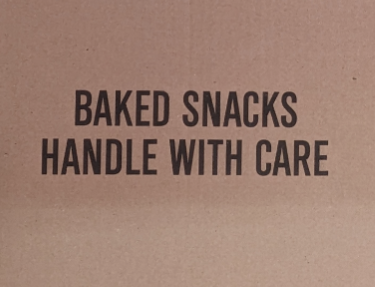I recently figured out I have ADHD. I also recently discovered that having a daily routine makes me feel a lot better. I learned this in a structured environment (rehab) and once I left that, I still know what I need to do and I know it will make me feel better and more productive, but I don't know how to do it...
I have lists (yes I have to include stuff like eating breakfast and brushing my teeth lol) but I dunno how to have them in a way that I can see and implement them. I have them on my phone, in my journal, post it notes around, etc. The only way that sort of works so far is to have an alarm on my phone titled with a long list of things to do, and just hit the snooze every ten minutes for hours, so I'm constantly being pestered. This annoys people around me, lol, and isn't all that effective anyway.
I'm looking forward to maybe medication but in the meantime I fucking KNOW that I will feel better if I can do these things. Any advice on how to trick myself to do them?
I have tried two apps which worked until they didn't, but that was mostly because I got out of the routine of using them because of minor inconveniences disturbing my morning routines.
Finch gamifies the routine and might work if you feel more compelled to do things for others. Unfortunately I am a ruthless tamagotchi abandoner so it doesn't work as a motivator for me.
The other is Routine Flow which I want to recommend because it includes timers. That can help you if you daydream and take too long to do certain tasks. Just this afternoon I just stood in the bathroom after brushing my teeth LMAO.
No shame in including things like brushing your teeth or eating. It's awesome that you are finding things that help you live a healthier life 💖
I have so many alarms, a php tasklog running on raspberry pi, RFID tags that my phone use to update the tasklog. I have php/database based around gtd that I'm supposed to be tying into the tasklog that I haven't gotten around to yet. And I have a couple of tablets mounted on walls in my house that are also set up as rudimentary dashboards/ endpoints for updating the tasklog (still not implemented that part). But the most helpful tool has been setup up some cardboard kanban boards with post it notes on them (which is probably why I haven't gotten around to tiying the gtd php code in the tasklog yet.)
I also have routines set up on my phone to block out social media during working hours to keep me from getting lost doom scrolling. Like if I open up instagram in the middle of the day, it redirects me to firefoxwith the webpage for the tasklog.
I've also considered setting up some code to text message me reminders of what I should be doing if I'm on a task for too long. Like if my current tasklog entry is Duolingo and it's past 20 minutes, send me a text ask me what I'm working on.
I am not diagnosed with anything, however, if I don't resort to this shit and trying to gamify/gaslight myself, nothing gets done. So who knows what that means. The weekends when I (try to) sleep in and go of my m-f schedule is chaos and none of my important projects get done.
I have autism as well, so that’s a “plus,” but I have slowly built up consistent morning and night routines with stretching and reading and stuff at the same time every day in order and that helps a lot. I don’t know if reading helps you sleep, but I really just started reading some whenever I finally brushed my teeth and added random things over time. Start with the small things and don’t worry too much about consistent times until you have a bunch of consistent activities?
for me it's all about repetition. set the routine for one thing, all the steps layed out, clear starting time (as soon as I am home, 7.30 pm or so "after dinner" is usually not definitive enough) and then do it over and over and over. One routine at a time, do the morning routine to death, then the evening routine, the lunchbrak routine, the bath cleanin routine etc.
Some thoughts:
Mindset:
- Medication will not make you better at performing a routine. What I've learned is, we are bad at that because we never developed the skills to keep a routine when we were kids, which is a result of our ADHD going undiagnosed and our parents not having the information they needed to guide us.
- Guilt will prevent you from doing a routine and will not motivate you to do it.
- Your internal monolog is important, the way you talk about your routine to yourself will impact your ability to do it. Having ADHD means you are also riddled with shame, shame others have placed on you. That shame becomes your internal monolog. You have to resist belittling yourself, and you have to actually say positive things, encouraging things, even if you feel like you are faking it. Don't just say them in your head, say them out loud, say them in the car, say them in the mirror after you wake up.
Practical:
- You should know that it can take between 18 and 254 days for a person to form a new habit. On average, 66 days before the habit becomes automatic.
- Try Piggy Backing: Often times you can piggyback another task onto something you already do all the time. Think of the things you know you do already, and use that as a hack to do the other things too. If you use the bathroom right as you get home every day, just brush your teeth right after. Brushing and then eating afterward is mostly fine and way better than never brushing.
- Start small: You can't build 100 habits all at once, that's never going to work. Pick one or two and just zero in on them. Once they begin to feel "automatic", or, it feels weird to skip them, then you can try and tackle another.
- Check out the Loop Habit Tracker app for your phone (android). I constantly use this thing. The reason I like it, and the reason it works for me, are two things. 1) Everything you schedule in the app appears as a notification that cannot be swiped away or cleared away with the "Clear All" button. 2) You name your task in the form of a question, "Did you brush your teeth today?", and the notification has two buttons "Yes" or "No". This act of acknowledging that I either did, or did not do something, makes me want to do it next time. This app might not work for you, but it does for me. I set these daily tasks to show up around the time I might be waking up or going to bed. They pile up in the notification window and are very annoying to get rid of. The most satisfying way to get rid of them is to just do the task.
- Externalizing: Keeping things on your phone is a hit or miss experience. My phone, like my fridge, is a black box and I have no idea what is in it ever. Keeping lists on my phone is great until there is no rewarding reason to open the note's app. That is the issue with all this note-taking, is there is no real reward for doing any of it at the moment. Delayed gratification is not something our brains give a shit about. What I find works for me is a big ass white board. I keep the white board in the highest trafficked part of my house, so that it's very difficult to avoid. I use it mostly as long-term storage for things I might forget.
- Know your triggers: When I get home, if I change out of my work cloths into my comfortable at home cloths, I know it will act as a trigger to send me into "lounge mode". Something about keeping my shoes on and keeping my work cloths on helps me maintain that momentum I had from work, and allows me to do a few things before I "settle in". This might be taking out the trash in the house, cleaning the litter box, doing dishes, making dinner, etc. Sometimes my kid will say to me "Dad, you still have your shoes on." and I always tell her "It's because I want to get things done."
- If you can, use the buddy system: At some point, I told my wife, that it would greatly help me get into the habit of doing nightly hygiene stuff if we did it together. She eventually agreed, after not really understanding why, and would make sure we both brushed our teeth at the same time. Now, even on my own, I can't go to bed without brushing. This is a good hack for kids too, now me and my kiddo brush our teeth together every night.
Lastly, just read up on the science of habits. Knowing that there is a clear understanding of how habits get formed, and why, you can leverage that knowledge for yourself. We obviously have a much harder time doing this, but this science still applies to us as well.
I'm learning that the easiest way for me to do things on a consistent basis is to have the Process of Doing the Thing prepared and thought out beforehand; kind of like a time frame for a to-do list to complete each task. I will say I have AuDHD with OCD tendencies so this may seem way overcomplicated.
As an example, I brush my teeth first thing every morning, and to start my going-to-bed routine. It takes about 5 minutes. The process is: Go to bathroom > get toothbrush > get toothpaste > apply toothpaste to toothbrush > put toothpaste back> brush teeth > rinse toothbrush> put toothbrush back
The more I do things the exact same way, the less I end up having to think about it, like a true habit that is almost second nature, and that benefits me in other areas of my life that require more attention.
Timers and alarms help me pace myself throughout the day and give me chances to check in with myself. It takes time and a little bit of discipline, but in my experience the effort and time spent making small changes is worth it. Just keep in mind to be kind and patient with yourself as others have said as you figure out what works best for you.




